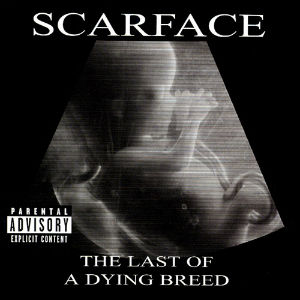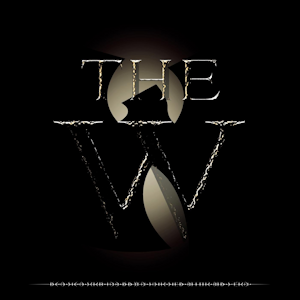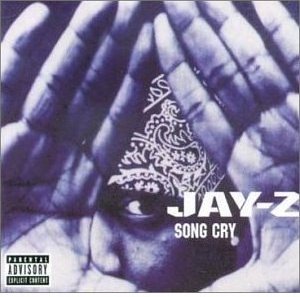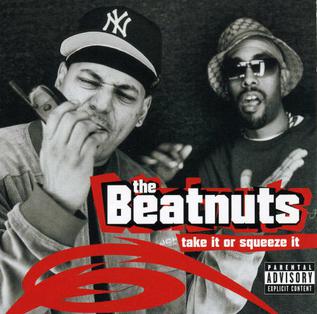
The Blueprint is the sixth studio album by American rapper Jay-Z, released on September 11, 2001, through Roc-A-Fella Records and Def Jam Recordings. Its release was set a week earlier than initially planned in order to combat bootlegging. Recording sessions for the album took place during 2001 at Manhattan Center Studios and Baseline Studios in New York City. Contrasting the radio-friendly sound of Jay-Z's previous work, The Blueprint features soul-based sampling and production handled primarily by Kanye West, Just Blaze, and Bink, as well as Timbaland, Trackmasters, and Eminem, who also contributes the album's sole guest feature.

Tical 2000: Judgement Day is the second studio album by American rapper and Wu-Tang Clan member Method Man. It was released on November 17, 1998, by Def Jam Recordings. The album's title and overall theme were heavily influenced by the apocalypse theories surrounding the forthcoming end of the second millennium. It features production from RZA, True Master, Inspectah Deck, 4th Disciple, Erick Sermon, Havoc, and Trackmasters, among others. The album also features a multitude of guest appearances from artists such as Redman, Left Eye, Mobb Deep, D'Angelo and various Wu-Tang Clan members and affiliates such as Streetlife, who appears on seven of the album's twenty-eight tracks.

Tical is the debut studio album by American rapper and Wu-Tang Clan member Method Man. It was released November 15, 1994, by Def Jam Recordings. It was the first Wu-Tang solo album released after the group's debut, Enter the Wu-Tang . Similar to all first generation solo Wu-Tang projects, Tical was mainly produced by group member RZA, who provided a dark, murky and rugged sound. The album features guest appearances from RZA, Raekwon, Inspectah Deck, as well as several affiliates, who would later appear on future group projects. On October 5, 2017, Method Man revealed on the Viceland talk show Desus & Mero that the album's title is an acronym for "taking into consideration all lives."

Iron Flag is the fourth studio album by American East Coast hip hop collective Wu-Tang Clan, released on December 18, 2001, on Loud Records. It was certified gold in sales by the RIAA. Iron Flag served as the group's second lowest-selling album, as their record label, Loud, was on the verge of shutting down at the time. The album debuted at No. 32 on the Billboard 200 with 153,000 copies sold in its first week of release. It has sold over half a million copies in the United States and certified Gold by the RIAA. Rapper Ol' Dirty Bastard is completely absent from the album.

The Blueprint 2: The Gift & the Curse is the seventh studio album by American rapper Jay-Z. A double album, it was released on November 12, 2002, by Roc-A-Fella Records and Island Def Jam Music Group. The album serves as a sequel to his sixth album The Blueprint (2001). The album debuted at number one, shipping with first-week sales of 545,000 units. The album is certified 3x Multi-Platinum by the RIAA. In 2013, Jay-Z cited this album as his second-worst due to an overabundance of songs on the album. A one-disc reissue, titled Blueprint 2.1, was released in 2003.

Be is the sixth studio album by American rapper Common. It was released on May 24, 2005, by Geffen Records and GOOD Music. The album is Common's first album under Geffen, following the mediocre performance of 2002's Electric Circus and July 2003 merger of preceding label MCA Records, which, like Geffen and its sister label Interscope Records, was a division of Universal Music Group.

Deliverance is the second album by American rapper Bubba Sparxxx. It was released on September 16, 2003, by Beat Club and Interscope Records. The album was produced by Timbaland and Organized Noize. It was supported by three singles: "Jimmy Mathis", "Deliverance", and "Back in the Mud".

The Last of a Dying Breed is the sixth studio album by American rapper Scarface. The album was released on October 3, 2000, by Rap-A-Lot Records and Virgin Records. The album was less successful commercially than his last few efforts, but more successful critically. It debuted at number 7 on the Billboard 200 chart, selling 133,972 copies in its first week being certified Gold by the RIAA.

I Hear a Symphony is the eighth studio album released by American girl group the Supremes on the Motown label in 1966.

The W is the third studio album by American hip hop group Wu-Tang Clan. It was released on November 21, 2000, by Loud Records. After their 1997 album Wu-Tang Forever, several of the group's members released solo projects before The W, which has a more rugged, less polished sound than that of most Wu-Tang related albums from that era. The album also features guest appearances from Isaac Hayes, Redman, Nas, Busta Rhymes, Snoop Dogg and Junior Reid. It is the group's last album to feature Ol' Dirty Bastard before his death in 2004, as he was absent from their next album, Iron Flag (2001).

"Song Cry" is a song by American rapper Jay-Z and produced by Just Blaze. It was released on April 16, 2002. It was the fourth and final single from his sixth studio album The Blueprint and also appears on the 2001 live album Jay-Z: Unplugged.

The RZA Presents: Afro Samurai The Soundtrack is the film score album by American rapper and producer RZA. It was released on January 30, 2007 via Koch Records, as the soundtrack to animated television series Afro Samurai. Production was primarily handled by RZA, with Stone Mecca, J-Love and M1. It features contributions from Big Daddy Kane, Talib Kweli, Q-Tip and Wu-Tang Clan members and affiliates.

The discography of Wu-Tang Clan leader RZA consists of four studio albums, two compilation albums, one instrumental album, four extended plays and five singles.

Take It or Squeeze It is the fourth studio album by American hip hop duo The Beatnuts. It was released on March 20, 2001 via Loud Records and Epic Records. Recording sessions took place at Planet Sound Studios and Chung King Studios in New York. Produced by the Beatnuts, it features guest appearances from Marley Metal, Black Attack, Bloody Moon, Fatman Scoop, Greg Nice, Miss Loca, Problemz, Tony Touch, Triple Seis, Willie Stubz, Method Man, and former member Al' Tariq.

Oz: The Soundtrack is the soundtrack album to the HBO television series Oz. It was released on January 9, 2001, through Nettwerk/Avatar Records and composed of hip hop music.

Robert Fitzgerald Diggs, better known by his stage name RZA, is an American rapper, record producer, composer, actor, and filmmaker. He is the de facto leader of the hip hop group Wu-Tang Clan, having produced most albums for the group and its respective members. He is a cousin of two other original Wu-Tang Clan members: GZA and Ol' Dirty Bastard. He has also released solo albums under the alter-ego Bobby Digital, along with executive producing credits for side projects. After forming the Wu-Tang Clan, RZA was a founding member of the horrorcore group Gravediggaz, since 1992, where he went by the name The RZArector.

Bobby Digital in Stereo is the debut studio album by American rapper and producer RZA. It was released on November 24, 1998, and was certified Gold on February 5, 1999, by the Recording Industry Association of America (RIAA). It is an experimental album that is based on a story featuring him rhyming as a hedonistic, fun-loving alter-ego named Bobby Digital and showcasing a unique keyboard-driven sound that RZA called digital orchestra, receiving mostly positive, though somewhat mixed, reviews.

Wu-Tang Forever is the second studio album by the American hip hop group Wu-Tang Clan, released June 3, 1997, by Loud and RCA Records in the United States. Pressed as a double album, it was released after a long run of successful solo projects from various members of the group, and serves as the follow-up to their debut album Enter the Wu-Tang . Forever features several guest appearances from Wu-Tang affiliates Cappadonna, Streetlife, 4th Disciple, True Master, and Tekitha. The original run of compact discs featured an enhanced CD which allowed users to walk around the "Wu Mansion" and access additional content.

Digi Snacks is the fourth solo studio album by American rapper and producer RZA; the third album under his Bobby Digital alias. Continuing the story from Digital Bullet, the album was released on June 24, 2008, on Koch Records. The album was originally titled Digi Snax, but it was changed before release.

Ironman is the debut studio album by American rapper Ghostface Killah, released on October 29, 1996, by Epic Records. It was produced by fellow Wu-Tang Clan member RZA. The album's music draws prominently on blaxploitation films and soul samples. More so than on other solo debuts from the group's members, Ironman contains references to the Nation of Gods and Earths.




















